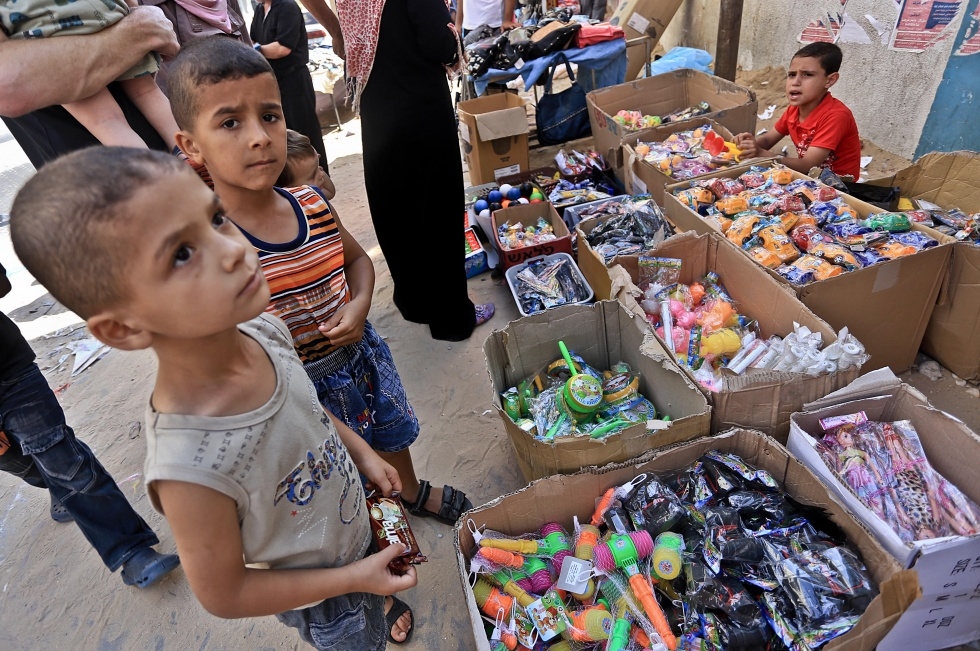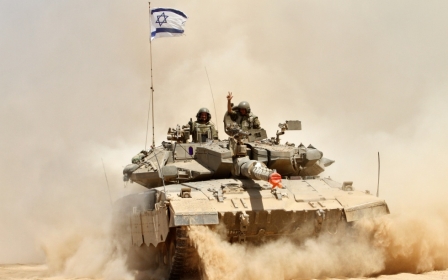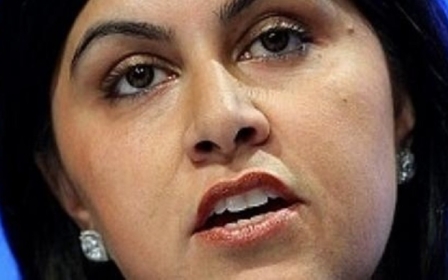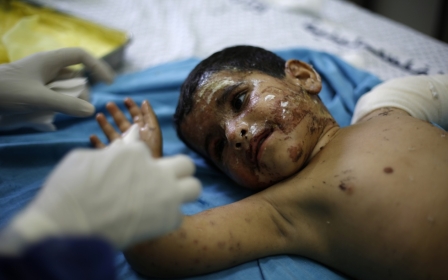Gaza truce holds, may be extended for another 72 hours

A 72-hour truce took root Tuesday in Gaza, as Israeli and Palestinian delegations travelled to Cairo to try to extend the ceasefire and families picked through the debris of war.
The guns fell silent after 29 days of fighting, bringing relief to millions as both sides counted the cost from a conflict that killed 1,875 Palestinians (mainly civilians) and 67 people in Israel (mainly soldiers).
Officials on both sides confirmed they had sent small delegations to Cairo for talks aimed at securing a permanent ceasefire after the three-day window closes.
But there is an uphill diplomatic battle ahead.
Negotiators in the Egyptian capital will likely confront conflicting demands on both sides.
The Palestinians insist Israel end its eight-year blockade of Gaza and open border crossings, while Israel wants Gaza fully demilitarised.
But after the longest period of quiet since fighting began, Palestinian foreign minister Riyad al-Maliki said he expected "the ceasefire to expand into another 72 hours and beyond".
Children play on the streets
In Gaza City, people came out in numbers, children played on the street and the beach, and some shops reopened for the first time in days.
Others ventured home for the first time only to witness scenes of devastation.
"What am I going to tell my wife and children? I don't want them to see this! They will go crazy," said Khayri Hasan al-Masri, a father of three who returned to his heavily damaged home in Beit Hanun in the north after fleeing when Israel's ground offensive began on July 17.
Gaping holes have pierced the walls of his home. There is a mortar in the living room, a bazooka upstairs.
In southern Israel, there was relief but scepticism.
"I never trust Hamas; we don't trust them," said Orly Doron, an Israeli mother living in a kibbutz on the Gaza border that has been battered by rocket fire.
"We had three or four ceasefires during this war; we all saw they weren't kept."
Just minutes before the truce took hold, sirens wailed in Jerusalem and Tel Aviv as Hamas fired 16 rockets over the border, while Israeli warplanes carried out at least five strikes on Gaza.
It is the second time in four days the two sides had agreed to observe a 72-hour humanitarian truce. The last attempt on August 1 -- brokered by Washington and the UN -- was shattered within just 90 minutes.
Israeli troops leave Gaza
As the new truce went into force, Israel withdrew its troops, ending the ground operation.
Lieutenant Colonel Peter Lerner said troops would be "deployed in defensive positions" outside Gaza and would respond to any truce violations.
The ceasefire, announced by Egypt late on Monday, marks the quietest period since fighting began.
Medics in Gaza reported no new deaths or injuries since midnight.
The Palestinian health ministry said 1,875 Palestinians had been killed during the conflict, including 430 children, and said 9,567 people had been wounded, including 2,878 children.
The quiet allowed emergency workers to move into previously inaccessible areas, with the worst devastation near the southern city of Rafah, which had been flattened in a massive Israeli assault that began Friday.
In the West Bank city of Ramallah, deputy economy minister Taysir Amro said the 29-day war had caused damage of up to $6 billion dollars (4.5 billion euros).
The latest breakthrough emerged in Cairo where Palestinian and Egyptian mediators had held two days of talks with Hamas and Islamic Jihad representatives.
The Israeli security cabinet is meeting to discuss efforts to secure a long-term ceasefire deal.
Cairo consultations
The United States and the United Nations have welcomed the truce.
Israel had been subject to increasingly harsh criticism over the high number of civilian casualties during its military operation launched on July 8.
The Israeli army says it destroyed 32 cross-border tunnels, struck nearly 4,800 targets and killed 900 Palestinian fighters.
"We struck just over 3,000 rockets; they launched over 3,300 rockets and we expect that they still have about 3,000 rockets left. This is a challenge we have to address," Lerner said.
Meanwhile, Jordan presented a new resolution to the UN calling for a lasting ceasefire between Hamas and Israel, and an international effort to rebuild the Palestinian enclave.
New MEE newsletter: Jerusalem Dispatch
Sign up to get the latest insights and analysis on Israel-Palestine, alongside Turkey Unpacked and other MEE newsletters
Middle East Eye delivers independent and unrivalled coverage and analysis of the Middle East, North Africa and beyond. To learn more about republishing this content and the associated fees, please fill out this form. More about MEE can be found here.




